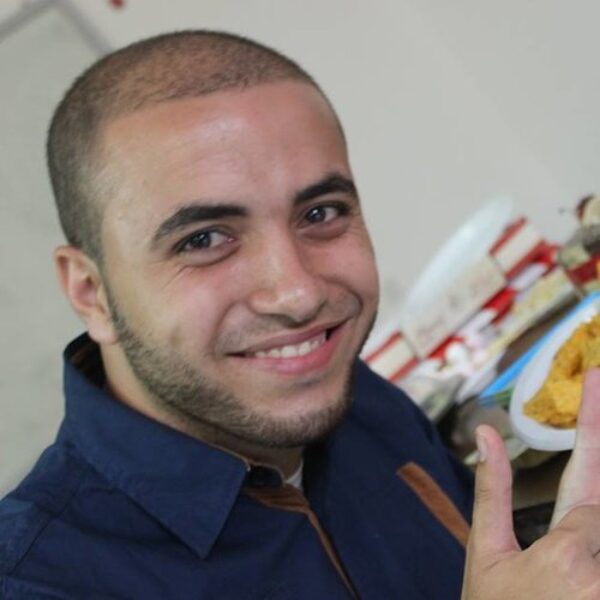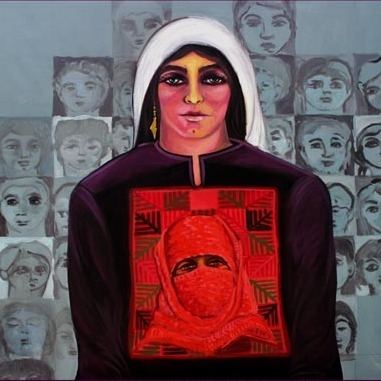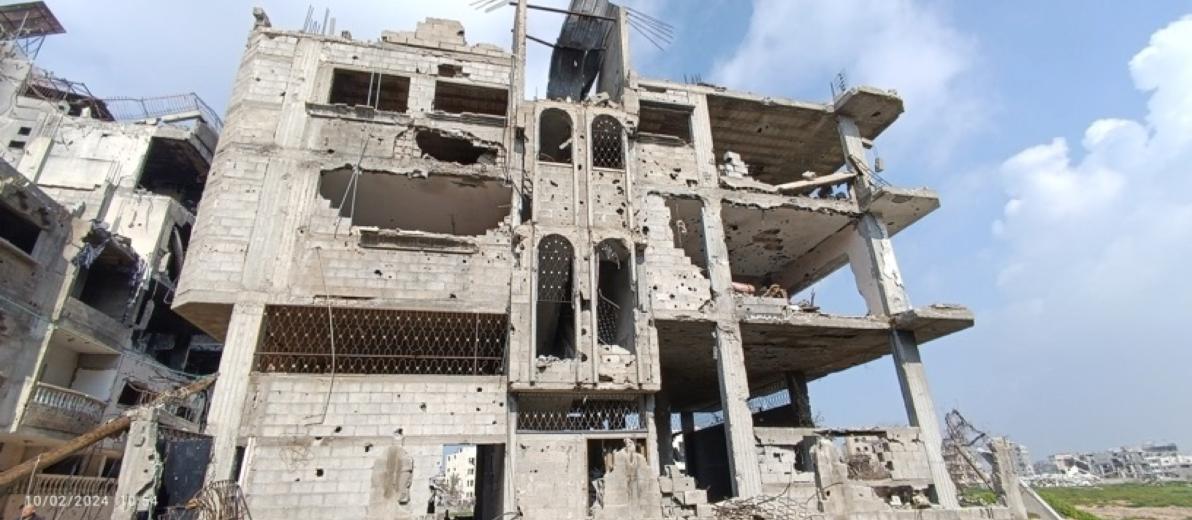Author’s note: This story is based on real events that took place within my family during the 1970s. The "narrator" is my father when he was just 10 and his brother was 24. Tragically, such events are not confined to the past nor to a single family. My characters have no names because they are archetypes as well as individuals. Every day throughout the land of Palestine sons and daughters are killed and parents suffer as they do in this story. So, this is a story of present-day Gaza as well as an echo from the past.
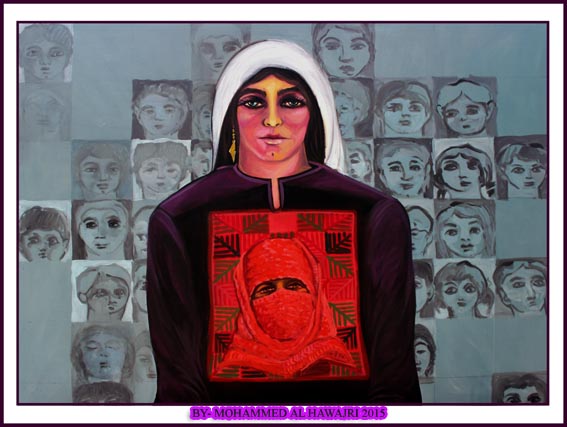
One day, I was having fun playing “catch me if you can” with my cousins in our neighborhood. We played every day after the Asr prayer (the third of the five daily prayers said by practicing Muslims). Then a man on a motorbike arrived. He was a young man, in his 20s. He dismounted, his manner suggesting he didn’t know the area or anybody there. His steps were uncertain as he wandered around the outside of our house.
I did not pay him much attention at first. But then I had to, for he was staring closely at our house. There was a sorrowful look in his eyes. I stopped playing and stood motionless, wondering who he was. People began approaching him, asking what he was doing there. He exchanged a few words with them. Then they all turned to look at our house, sharing the stranger’s expression of sorrow.
I left my cousins, a sense of panic rising inside me. I kept asking myself what could have happened. My mother was inside, sitting behind her sewing machine. She was the only tailor in the town. Each day she would sew an article of clothing for one of her relatives. That day she was sewing a scarf for my brother, incorporating the pattern of the Palestinian flag. It always gave her special pleasure to make a gift like that for her son.
I could hear her singing. “Al amal berjale, ya sha'abna, ya batal, afdeek be enaya. (Hope is our men, oh my brave people.) Afdeek be enaya. (I would sacrifice my own eyes for you.)" Just as she sang those last words, the doorbell rang. She stopped singing and opened the door. The whole town was standing there.
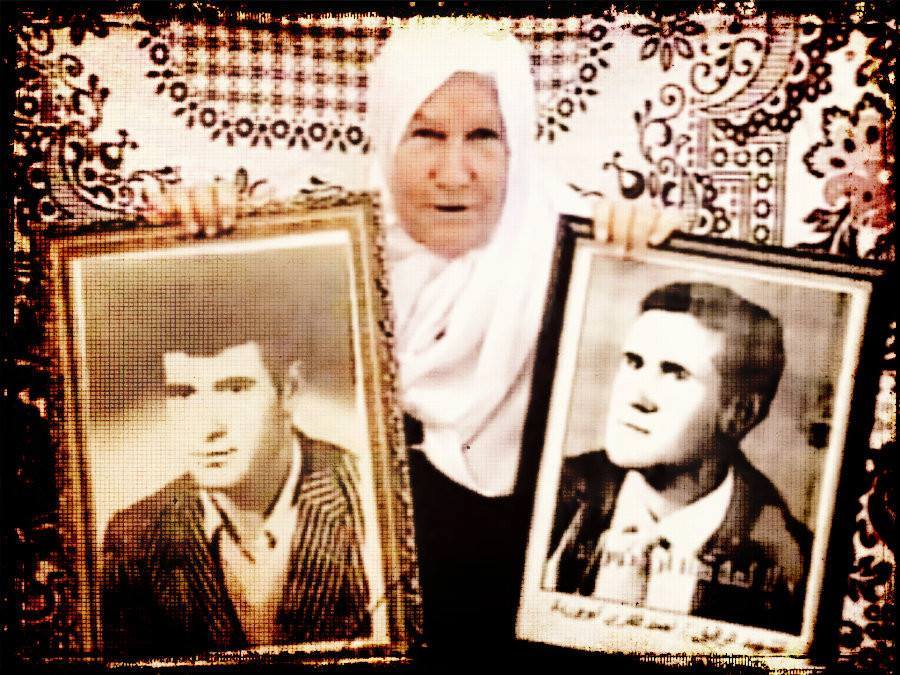
"What's the matter?" she asked. No one answered. She kept asking them, insisting on an answer. Still no one spoke. They were all trying not to look into her eyes to conceal the hopelessness in their own. She could bear it no more.
"For God's sake! Speak up! What is going on?" she shouted.
The trembling voice of the stranger broke through the silence.
“Your son, I am sorry…”
“NO! NO! Don't say it!”
“He's a martyr now…”
She wept bitterly. Her cries of grief could be heard by people in the nearby mosque. Then she fainted.
My poor mother! The news of the martyrdom of yet another of her sons, the second in six months, overwhelmed her. She had sacrificed both of her eyes. The song had become real.
When at last she regained consciousness, she asked our relatives to take her to the place where my brother had been killed by the Israeli military. His body was lying beneath an olive tree. She knelt by him, caressing the face not yet scarred by life. She stroked his long hair and breathed his fragrance. Her tears fell upon his face, washing away every drop of blood, every speck of dust. Our relatives begged her to leave the body. But she did not. She could not. Of course she could not. That was the last time she could see him, touch him, hold him.
As we were preparing to leave, she turned back to the body and veiled his face with the scarf she had made for him. I could not bear to watch. I could not stop crying. Another member of our family was gone. I recalled every memory I had shared with my two brothers. I remembered the laughter, the games, the tears. Then my mother took my hand and squeezed it hard. She looked down again at his body, then at me and smiled.
Mentor: Keith Jacobsen
Posted September 25, 2016

